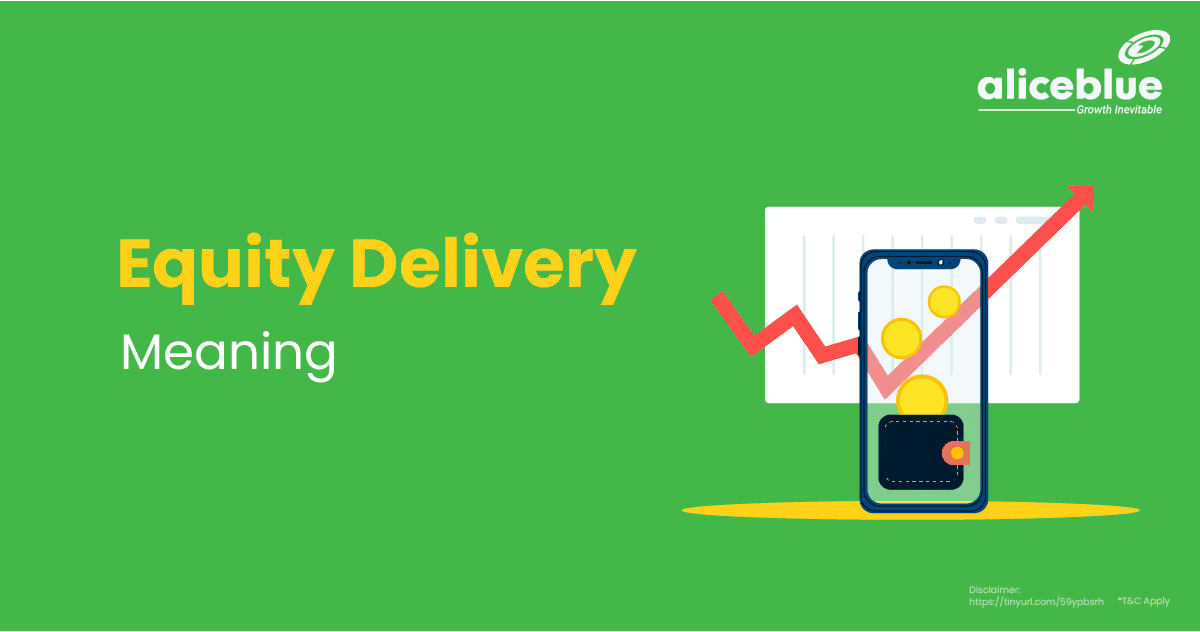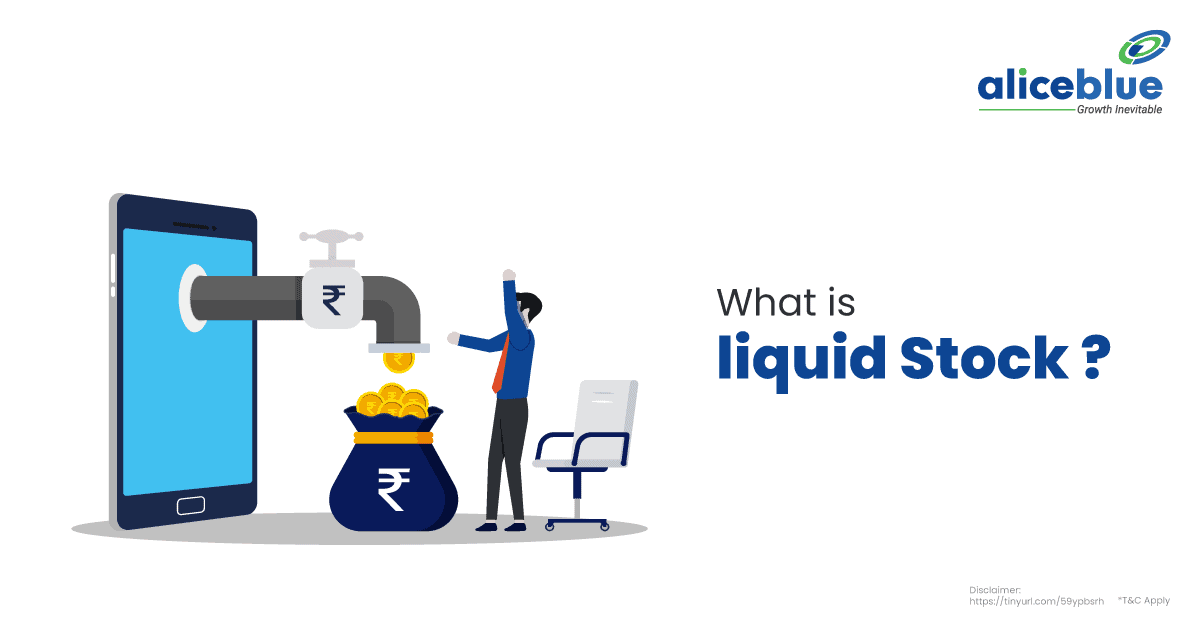Equity delivery trading refers to a process where investors purchase stocks and hold them in their demat accounts, taking actual ownership. Unlike intraday trading, delivery involves owning the shares beyond a single trading session, typically with a view toward long-term investment and capital appreciation.
Content:
- What Is Equity Delivery?
- T+2 Settlement Meaning
- What are Equity Delivery Charges?
- Equity Delivery Time
- Equity Delivery Vs Intraday
- How To Buy Delivery Shares?
- Equity Delivery – Quick Summary
- Equity Delivery Meaning – FAQs
What Is Equity Delivery?
Equity delivery refers to buying stocks in a manner where the buyer gains actual ownership of the shares. These purchased stocks are then transferred to the buyer’s demat account. Unlike intraday trading, which is settled within a single day, delivery trading involves holding the shares for an extended period.
In equity delivery, the investor has no obligation to sell the stock on the same day of purchase. This method suits long-term investment strategies, focusing on capital growth over time. The investor benefits from any dividends or rights issued by the company while holding the stock.
Delivery trading also implies paying the full amount for the shares purchased. It offers the safety of ownership, making it less risky than intraday or margin trading, where stocks are bought and sold rapidly, often on borrowed funds. Equity delivery is ideal for those seeking to build a portfolio gradually.
T+2 Settlement Meaning
T+2 settlement refers to the financial term where the completion of a securities transaction occurs two business days after the trade is executed. It’s the standard timeline for transferring the ownership of stocks or bonds from the seller to the buyer.
In this settlement process, the ‘T’ represents the transaction date, the day the trade occurs. The ‘+2’ indicates that the securities and cash will be exchanged two business days later. This period allows for the orderly processing and transfer of necessary documentation and funds.
The T+2 settlement cycle is crucial for maintaining market stability and integrity. It provides a buffer for clearing and settling trades, reducing the risk of defaults. This period also helps in verifying transaction details and ensures that both parties meet their respective obligations in the trade.
For example: Suppose you buy stocks on Monday (the transaction date, T). Under the T+2 settlement rule, the stocks will officially be yours on Wednesday, two business days later. This interval allows for processing and finalizing the transaction.
What are Equity Delivery Charges?
Equity delivery charges are fees that investors pay to brokers for buying and holding stocks in their demat accounts beyond a trading day. Unlike intraday trading, which may have lower or no charges, delivery trading often incurs a brokerage fee based on the transaction value.
These charges vary among brokerages and are typically a percentage of the transaction value. Higher transaction values may attract lower percentage fees. Some brokers might offer free equity delivery trades as part of their service, attracting long-term investors who prefer holding stocks.
Apart from brokerage, equity delivery might also involve other charges like Securities Transaction Tax (STT), stamp duty, transaction charges, GST on the brokerage and transaction charges, and SEBI turnover fees. These additional costs are usually a small percentage of the transaction but can add up over multiple trades.
Open free demat account with Alice Blue in 15 minutes today! Invest in Stocks, Mutual Funds, Bonds & IPOs for Free. Also, trade at just ₹ 15/order and save 33.33% brokerage on every order.
Equity Delivery Time
Equity delivery time refers to the duration an investor holds a stock after purchasing it through a delivery trade. Unlike intraday trading, where positions are closed the same day, equity delivery involves retaining the stock for a longer period, ranging from days to several years.
The duration of equity delivery depends on the investor’s strategy. Some may hold stocks for a few days to benefit from short-term price movements, while others might keep them for years, aiming for long-term capital appreciation and dividends. This flexibility allows for varied investment approaches.
Longer equity delivery times align with fundamental analysis, where investors select stocks based on company performance and market potential. Holding stocks for an extended period can yield significant returns, especially if the company grows substantially. However, it also entails the risks associated with market volatility and company-specific factors.
Equity Delivery Vs Intraday
The main difference between equity delivery and intraday trading is that equity delivery involves buying stocks for long-term holding, focusing on capital appreciation. In contrast, intraday trading is about buying and selling stocks within the same trading day for quick profits.
| Aspect | Equity Delivery | Intraday Trading |
| Holding Period | Long-term (days to years) | Very short (within a single trading day) |
| Objective | Capital appreciation, dividends | Short-term profit from price movements |
| Risk | Lower, spread over time | Higher, due to market volatility |
| Capital Requirement | Full payment for stocks | Margins used, lower upfront capital |
| Brokerage Charges | Generally higher | Lower or sometimes zero |
| Ownership of Securities | Actual transfer to Demat account | No ownership, purely speculative |
| Suitability | Suitable for long-term investors | Suitable for traders, quick decision-makers |
| Additional Benefits | Dividends, bonus shares (if held long enough) | Leverage to trade more with less capital |
How To Buy Delivery Shares?
To buy delivery shares using Alice Blue, log into your trading account, select the desired stocks, and choose the ‘Delivery’ option. Enter the number of shares and price, confirm the order, and ensure sufficient funds in your account. Upon execution, the shares get credited to your demat account.
Account Setup: Open a trading and demat account with Alice Blue. Complete the KYC process, providing the necessary documents for identity and address verification. Fund your account to ensure sufficient balance for purchasing shares.
Market Research: Before buying, conduct thorough research. Analyze stock performance, market trends, and company fundamentals. Use Alice Blue’s research tools and reports to make informed decisions.
Placing an Order: Log into the Alice Blue trading platform. Navigate to the stock section, choose your preferred stock, and select the ‘Delivery’ option. This indicates you’re buying shares to hold rather than for intraday trading.
Order Details: Specify the number of shares you want to buy and set your price. If you choose a market order, it will execute at the current market price. For a limit order, set your desired purchase price.
Order Execution: Review and confirm your order. The system will match your buy order with a suitable sell order. The time taken for execution depends on market conditions and your set price.
Settlement and Transfer: After the order executes, it undergoes the T+2 settlement process. In two business days, the purchased shares are transferred to your demat account, completing the delivery trade.
Monitor and Manage: Once the shares are in your demat account, monitor their performance. Alice Blue offers tools for portfolio tracking and management. Decide on a long-term strategy for holding or selling the shares based on market analysis and personal investment goals.
Equity Delivery – Quick Summary
- Equity delivery entails buying stocks for actual ownership, with shares transferred to the buyer’s demat account. Unlike intraday trades settled in a day, delivery trading involves holding stocks longer, emphasizing long-term ownership and investment.
- T+2 settlement is a standard financial process where securities transactions, like stock or bond trades, are finalized two business days after execution. This timeframe allows for the orderly transfer of ownership from seller to buyer.
- Equity delivery charges are fees paid to brokers for buying and holding stocks longer than a day. These differ from intraday trading, which has lower or no charges, as delivery trading typically incurs fees relative to the transaction’s value.
- Equity delivery time is the period an investor holds a stock post-purchase in delivery trades, contrasting with intraday’s same-day closure. It ranges from days to years, catering to longer-term investment strategies and goals.
- The main difference between equity delivery and intraday trading is that equity delivery focuses on long-term capital appreciation with extended holding, while intraday targets quick profits by buying and selling stocks within the same day.
- To purchase delivery shares with Alice Blue, simply log into your account, select stocks, and opt for ‘Delivery’. Specify share quantity and price, confirm the order, and maintain adequate funds. After execution, shares are credited to your demat account.
- Open free demat account with Alice Blue in 15 minutes today! Invest in Stocks, Mutual Funds, Bonds & IPOs for Free. Also, trade at just ₹ 15/order and save 33.33%
Equity Delivery Meaning – FAQs
1.What Is Equity Delivery?
Equity delivery involves buying stocks and holding them beyond a trading day, taking actual ownership. Shares are transferred to the investor’s demat account, typically for long-term investment, focusing on capital appreciation and dividend benefits.
2.What is the difference between equity delivery and intraday?
The main difference is that in equity delivery, stocks are bought for long-term holding with actual ownership, while intraday trading involves buying and selling stocks within the same trading day for short-term profits.
3.How is equity delivery brokerage calculated?
Equity delivery brokerage is typically calculated as a percentage of the transaction value. The rate varies across brokers, with some offering a flat fee per trade or even free brokerage for delivery trades.
4.What are equity delivery charges?
Equity delivery charges are fees paid to brokers for buying stocks held beyond a trading day. These can include brokerage fees, based on transaction value, and additional charges like STT, transaction charges, GST, and SEBI fees.
5.What is the time period for equity delivery?
The time period for equity delivery is typically T+2 working days, meaning the stocks bought are transferred to the investor’s demat account two business days after the transaction date, completing the ownership transfer process.
6.What is the margin for equity delivery?
In equity delivery trading, the full amount of the stock value must be paid, as it involves taking actual ownership of shares. Therefore, there’s no margin involved like in intraday or derivative trading.
We hope that you are clear about the topic. But there is more to learn and explore when it comes to the stock market, commodity and hence we bring you the important topics and areas that you should know:






